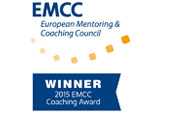DIFFERENT WAYS COACHING CAN HELP
Socrates reportedly once said “I cannot teach you anything, I can only make you think.” So the fundamental approach to coaching is not new! Coaching involves listening in a focused and mindful way; prompting with questions that will help the individual both reflect and then find the right ways forward for themself. It is also about providing a safe space for people to think for themselves and knowing when not to speak!
Coaching pays attention not just to someone’s words but to how they speak and act. Coaching is a respectful relationship, a partnership, where the coach does not act as “the expert” and where clients will be both supported and challenged. In a world that is often described as subject to both VUCA (Volatility, Uncertainty, Complexity and Ambiguity) and BANI (Brittle, Anxious, Nonlinear and Incomprehensible), an external perspective can help in determining next steps.
 The CIPD’s Coaching Climate Survey report 2011 based on 322 responses from organizations, states that the proportions reporting the use of coaching and mentoring in tackling poor performance and in lifting capability in good performers have both doubled. More recently an Executive Coaching survey in 2020 produced by Sherpa showed that coaching was being used across the world to support leaders in their development as “the most effective way of addressing the gap between the demands placed on leaders and their capacity to lead.” The majority of coaching is now delivered by phone or online. Coaching and mentoring are also increasingly used to support employee engagement, career advancement, problem solving and having a successful and meaningful work life.
The CIPD’s Coaching Climate Survey report 2011 based on 322 responses from organizations, states that the proportions reporting the use of coaching and mentoring in tackling poor performance and in lifting capability in good performers have both doubled. More recently an Executive Coaching survey in 2020 produced by Sherpa showed that coaching was being used across the world to support leaders in their development as “the most effective way of addressing the gap between the demands placed on leaders and their capacity to lead.” The majority of coaching is now delivered by phone or online. Coaching and mentoring are also increasingly used to support employee engagement, career advancement, problem solving and having a successful and meaningful work life.
In setting up coaching, we will always seek to involve key stakeholders, including the sponsor and the coachee, to ensure that the outcomes address the needs identified in a transparent way, paying great attention to confidentiality. We will agree a clear process for evaluation, and discuss how the coaching can best be supported within the organization.
One-to-one, group and team coaching can be used effectively for a variety of purposes including:















